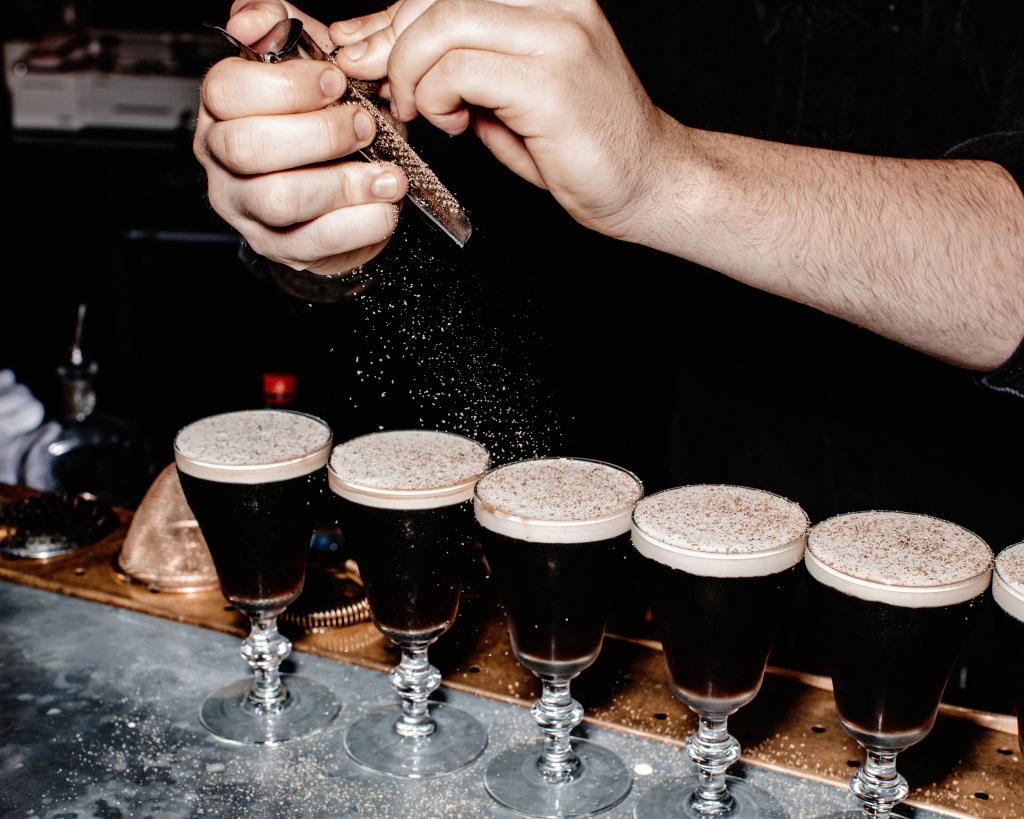It’s time to taste poitín: Ireland’s mythologized, now legalized, moonshine
For over 1,000 years, Ireland’s verdant hills and misty moors have held a secret — and no, we aren’t talking about leprechauns. We are talking about a spirit that is more entwined with the Irish identity than all the whiskey and Guinness combined.
For three centuries, poitín (pronounced pot-cheen), Érie’s rare mountain dew, was illegal, but nevertheless remained part of the fabric of the nation’s social life. Now legal since 1997 (with regulated alcohol content), the Irish moonshine has had time to come into its own. Craft distillers and bars are dispelling the notion that poitín is dangerous or blinding, while highlighting flavors and textures that draw from the lush, fertile landscapes of the Emerald Isle.
“A bottle of whiskey is for the everyday, but for the big moments in life, there’s nothing like a drop of poitín,” quips Dave Mulligan, founder of Bán Poitín and owner of Dublin’s Bar 1661, an award-winning cocktail bar opened to showcase the spirit. “My father gifted me some illegal poitín when I opened my first bar in London, and for me, it elevated the importance of what it had traditionally been in Irish culture: currency and the heart of celebration at the big events like weddings, wakes, funerals, and fairs.”
His bar, named 1661 for the year the English crown outlawed the spirit, is a temple to the craft of poitín-forward cocktails. The menu features a who’s-who of the top producers from across Ireland (north and south), each showcasing the flavors and history of the county it comes from. The spirit can be made from barley, wheat, potatoes or even something wilder. The de facto first order at the bar (outselling even Guinness) is the “Belfast Coffee” (about $10): It’s a take on an Irish coffee that swaps the whiskey for poitín and the hot coffee for cold brew before being layered with Irish cream and nutmeg.
While 1661 is a must-visit for the culinarily curious, or the rambling traveler, there is an abundance of delicious poitín to discover all over the island.
In the far north in Donegal, you’ll find Mulroy Bay, a tiny operation working out of Baoilleach Distillery making experimental poitíns over a live fire still. The original poitín, which is made 200 bottles at a time, is fresh, fruity and has a wild umami character that plays well with strong flavors.
In Northern Ireland’s County Down, Killowen Distillery is resting their blended green and malted barley poitín in oak (like whiskey). To the west in Galway, you’ll find sixth-generation distillers Pádraic and Jimín Ó Griallais, who hold the distinction of being the first legal distillers in the family, making 100% malted barley poitín that features a local Connemara botanical called “bogbean.” The distillery also lays down whiskeys and makes an Irish cream “potent like our grandma made.”
Down south in Cork, Cask is another can’t-miss cocktail program setting the bar for the rest of the country. While their menu isn’t as poitín-forward as 1661, they have an admirable dedication to using Irish ingredients. Take their hot winter concoction, the Bundle Up, which features Mad March Hare poitín, rhum, an Irish Buí (a botanical liqueur) and Irish apples.
While the Buí and the Irish apples are hard to come by in the US, you can get a taste of Éire at home by ordering Mad March Hare directly.
“We believe that poitín is to Irish whiskey as mezcal is to tequila; there’s the depth of flavor below the surface,” says John Ralph, the man behind the award-winning Mad March poitín,
With so much good poitín, it shouldn’t be hard to raise a glass for a toast to the Irish soul on your next visit. Sláinte!













